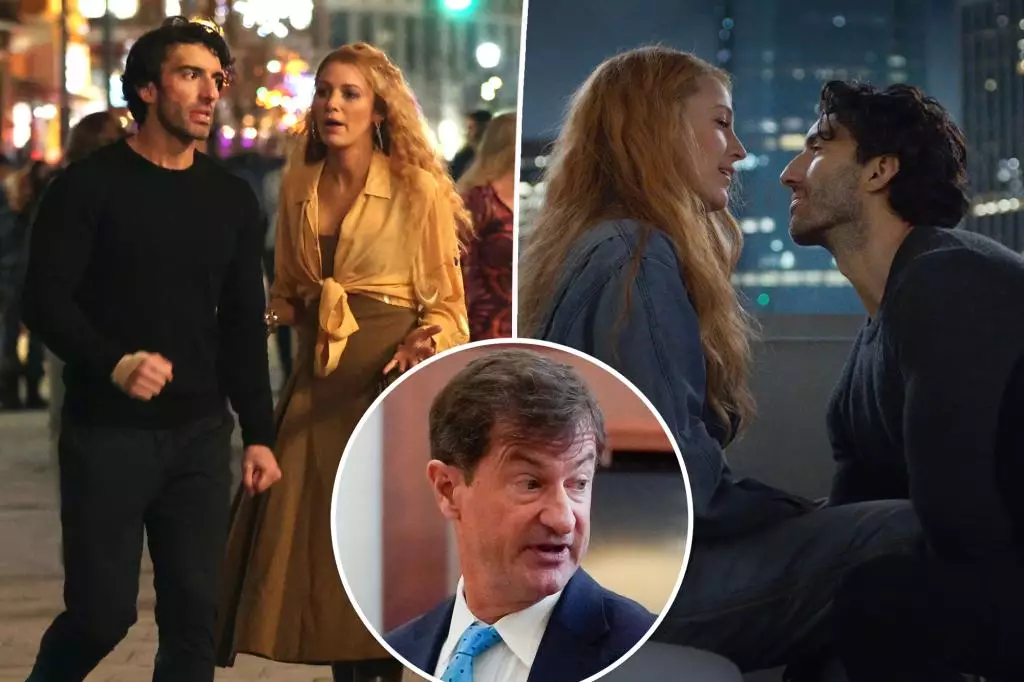In the unfolding legal drama surrounding the film adaptation of “It Ends With Us,” the strategies employed by Justin Baldoni, its director and star, have drawn significant attention. Baldoni’s recent decision to launch a dedicated website detailing his amended complaint and a proposed timeline of events to address the sexual harassment allegations made by Blake Lively has been described as “very aggressive” by Benjamin Chew, an attorney with a notable history in high-profile cases, including representing Johnny Depp. Chew’s commentary on Baldoni’s tactics highlights the unusual nature of pre-hearing disclosures in legal disputes, suggesting a strategic boldness that may redefine conventional legal norms.
As legal frameworks increasingly intertwine with public sentiment, Baldoni’s venture into publicizing legal pleadings raises interesting questions. Chew acknowledges that while such actions might be unconventional, they are rooted in legal transparency, as pleadings are part of the public record. This novel approach not only showcases Baldoni’s confidence in his position but also reflects an understanding of the current media landscape, where public perception can heavily influence legal outcomes. By making his case publicly accessible, Baldoni is not merely defending against accusations but actively engaging in shaping the narrative surrounding his circumstances.
The significance of evidence in legal battles cannot be overstated. Chew noted that concrete evidence, such as video footage and text messages, holds more weight compared to mere legal assertions, which may lack tangible backing. In Baldoni’s case, the release of raw footage from the “It Ends With Us” set, intended to serve as a rebuttal to Lively’s claims, turned contentious as Lively’s legal team labeled it “damning.” This highlights a stark reality in legal disputes: the interpretation of evidence can vary dramatically based on perspectives and motives.
Moreover, the intertwining of personal and professional realms becomes particularly acute for public figures like Baldoni and Lively. With his association to Johnny Depp through crisis management strategies, the implications of mutual reputations and past controversies add layers of complexity to this legal saga. Lively’s assertions of a coordinated smear campaign orchestrated by Baldoni and others illustrate the often-blurry line between professional collaboration and personal vendettas in the entertainment industry.
As the trial date is set for March 2026, the legal landscape surrounding “It Ends With Us” serves as a case study for future disputes in Hollywood. With insights from legal experts like Chew highlighting innovative practices, the proceedings could have lasting effects on how public figures approach allegations and legal challenges. Ultimately, this case underscores the necessity for a careful calibration between legal strategy, public perception, and the ethical implications of our actions in an increasingly scrutinized public arena. In navigating these waters, the stakes are not only about winning or losing a case but also about preserving one’s reputation in a climate where every action is subject to public interpretation.

